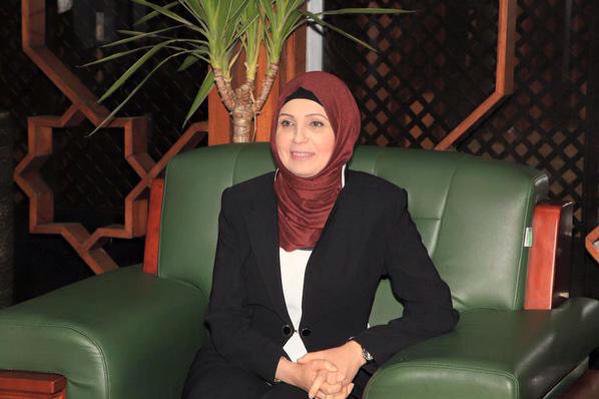The mayor of Baghdad, Thikra Alwash, wants to revive her war-torn city, fix its decrepit infrastructure and twin it with Paris, France; also a female-led metropolis. The 60-year-old civil engineer—and only woman mayor of a Middle East capital—faces a mountainous task.
She has given herself 10 years to revive the city, which is the heart of the Abassid Caliphate, and the center of Arab and Muslim civilization for over 500 years.
She has prioritized repairing war-scarred infrastructure and restoring the city’s heritage – but to do so, she needs to find the money. “When I took up my post in 2015, the municipality was bankrupt. I was told that I had to find the financing myself,” she said.
She has been a civil servant before: Alwash was director general for the Ministry of Higher Education, where she earned a reputation as a competent decisionmaker. Being an independent, she still had to battle the Shiite party, which wasn’t prepared to accept someone outside their party. But it wasn’t because she was a woman.
Iraq has traditionally been one of the most progressive nations in the Middle East, as regards women’s rights. It was only under Saddam Hussein that freedoms were slowly retracted. Once he was gone, things got worse, as the civil war strengthened control by conservative religious parties. But since the American presence arrived in the country, women have strolled unchallenged all around Baghdad, with and without veils.
One of the most critical issues is, of course, water. “Water supply and sanitation have immediate and major impacts on the quality of life of citizens”, said Mayor Alwash. “We are committed to improving public services for the residents of Baghdad and to alleviating the burden households face on a daily basis in getting clean and reliable water supply. We are confident that improved access to these services can significantly strengthen people’s trust and confidence in the state and contribute to building social cohesion when it is most needed.”
On January 31, 2018 it was announced that a US$210 million World Bank project will improve the quality of drinking water supply and wastewater services to 5 million residents in Baghdad who suffer from water shortages and the outbreak of waterborne diseases due to inadequate infrastructure, rapid population growth, and the inflow of internally displaced people.
The Baghdad Water Supply and Sewerage Improvement Project, approved today by the World Bank Group’s Board of Executive Directors will support the Mayoralty of Baghdad and the Baghdad Water and Sewerage Authorities through improvement in utility management, and generate employment during the construction, operation and maintenance stages of implementation. The project will also help reduce the incidence of water-borne diseases and improve the quality of life, health, and sanitation.
“The recently completed National Water and Land Strategy (2015-2035) indicates that Baghdad will need substantial investments in its water supply and wastewater treatment systems over the next 20 years. Given limited availability of public funding, attracting commercial finance will be critical for implementing this ambitious strategy”, said Saroj Kumar Jha, World Bank Mashreq Regional Director. “In close coordination with the International Finance Corporation, this project will focus on creating a more favorable business environment, and on supporting the preparation of feasibility studies and transactions to enable private sector participation in the water sector.”
The residents of Baghdad deal with daily water service interruptions, especially during the hot summer months. Baghdad is one of the governorates impacted by outbreaks of waterborne diseases. Leakage from sewer pipes contaminates potable water networks and groundwater aquifers, which aggravates health and environmental problems. Contaminated water supply and improper disposal of sewage force families to spend a significant fraction of their income on medical treatment and to purchase bottled water.
“Major cities like Baghdad face a growing population but have inadequate water infrastructure and service delivery capacity”, said Abdulhamid Azad, Lead Water Resources Specialist and Project Team Leader at the World Bank. “This project will improve the city’s water and sanitations services as well as support the Baghdad Water and Sewerage Authorities in improving their institutional knowledge and preparedness in relation to water security and urban water management. Also, the project will finance capacity-building activities targeted to female technical and managerial staff to increase their professional skills and allow for career advancement within the Water and Sewerage Authorities.”
The project will finance the construction of a service reservoir with a total capacity of 135,000 cubic meters, which will help the city manage its water supply better in case of climate-induced droughts. The project will also rehabilitate existing sewerage pumping stations thus reducing the public health effects of untreated wastewater discharged into the Tigris. The project will contribute to the reduction of physical losses by replacing about 130 km of water supply distribution network and the creation of district metering areas.
Featured photo courtesy of Iraq Pictures (@IraqPics) on Twitter.

